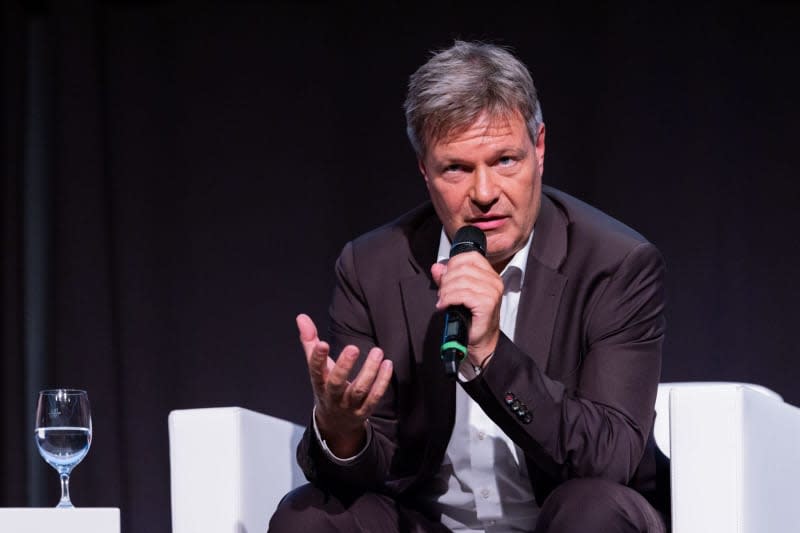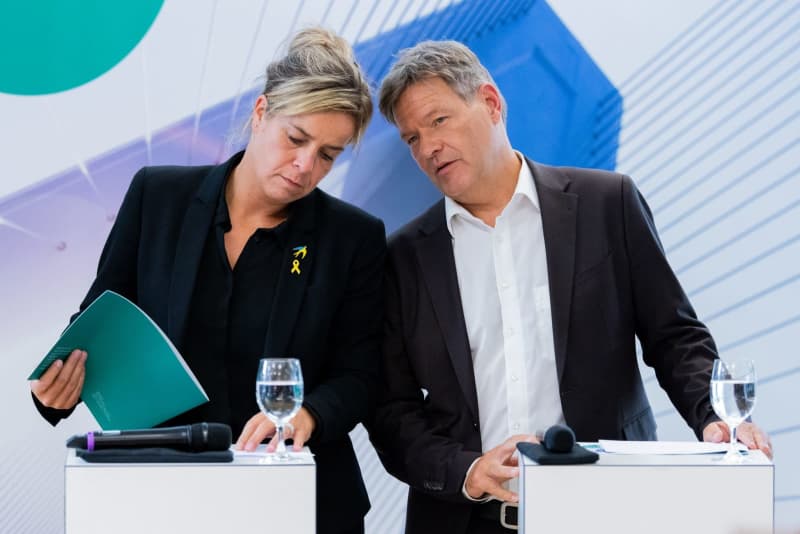German politicians and union members called for the preservation of the German steel industry and its transformation into a climate-neutral industry at a National Steel Summit in the western city of Duisburg on Monday.
“Green steel made in Germany is our driving force,” said Economics Minister Robert Habeck, pointing out that Germany and the EU are world leaders when it comes to decarbonising the steel industry.
“In Germany, we will convert around a third of Germany’s crude steel capacity by 2030, producing around 12 million tonnes of CO2-free steel,” he said.
German steel production is at the start of many important value chains, he added, making it a key driver for key sectors such as automotive and mechanical engineering and their transformation.
But steel, a major industry in Germany, is energy-intensive and responsible for about 7% of Germany’s total greenhouse gas emissions.
New technologies and the use of renewable or green energy sources, including hydrogen, can provide solutions.
The German government is investing billions of euros in building the large-scale factories needed for this process.
The German steel industry is also facing further problems, stemming from the weak economy, high energy prices and cheap imports, mainly from Asia.
In the run-up to the congress, IG Metall called on steel companies to “make a clear commitment to Germany as an industrial location and to invest in domestic locations.”
Politicians must create a reliable investment climate and commit to competitive electricity prices in the industrial sector, the union said.
German manufacturing companies say they are being hit by high energy prices and a lack of reliable supplies, prompting warnings that they may have to relocate to other countries or scale back their operations.
The summit was organised by the Ministry of Economic Affairs of North Rhine-Westphalia (NRW). According to the ministry, the sector employs over 80,000 people, of whom around 25,000 work in NRW.
With six blast furnaces alone, Duisburg is considered the largest steel location in Europe. “Together we are sending a strong signal: steel has a future,” says Mona Neubaur, the state’s Minister of Economics.
A competitive domestic steel industry is essential for industrial value chains, prosperity, employment and a green transformation in Germany and Europe, the industry action plan says.
“Steel is of great importance as a material for German and European industry,” it says. It is now crucial to make rapid and visible progress in implementing the measures, write the authors, who call for an immediate government program.
The eleven German states, which call themselves a ‘steel alliance’, advocate in the action plan the establishment of green lead markets, whereby demand for low-carbon steel is promoted through public procurement.
The industry is under great pressure, said Steel Federation President Gunnar Groebler. “To ensure that the boiler does not burst, the three biggest screws must be tightened now: setting up green lead markets, keeping energy prices in check and creating effective protection against unfair competition.”
“Tens of thousands of well-paid, collectively guaranteed jobs depend on the steel industry,” said Jürgen Kerner, vice-chairman of the IG Metall trade union.
As a basic materials industry, the steel sector is also central to the value creation network that makes Germany successful as an industrial location. “This must be preserved and transformed into a CO2-neutral future.”
Companies are expected to make a clear commitment to Germany as an industrial location and invest in the future of domestic locations, he said.
About 1,500 workers from 34 steel companies across the country were expected to attend a meeting outside the conference on Monday.









